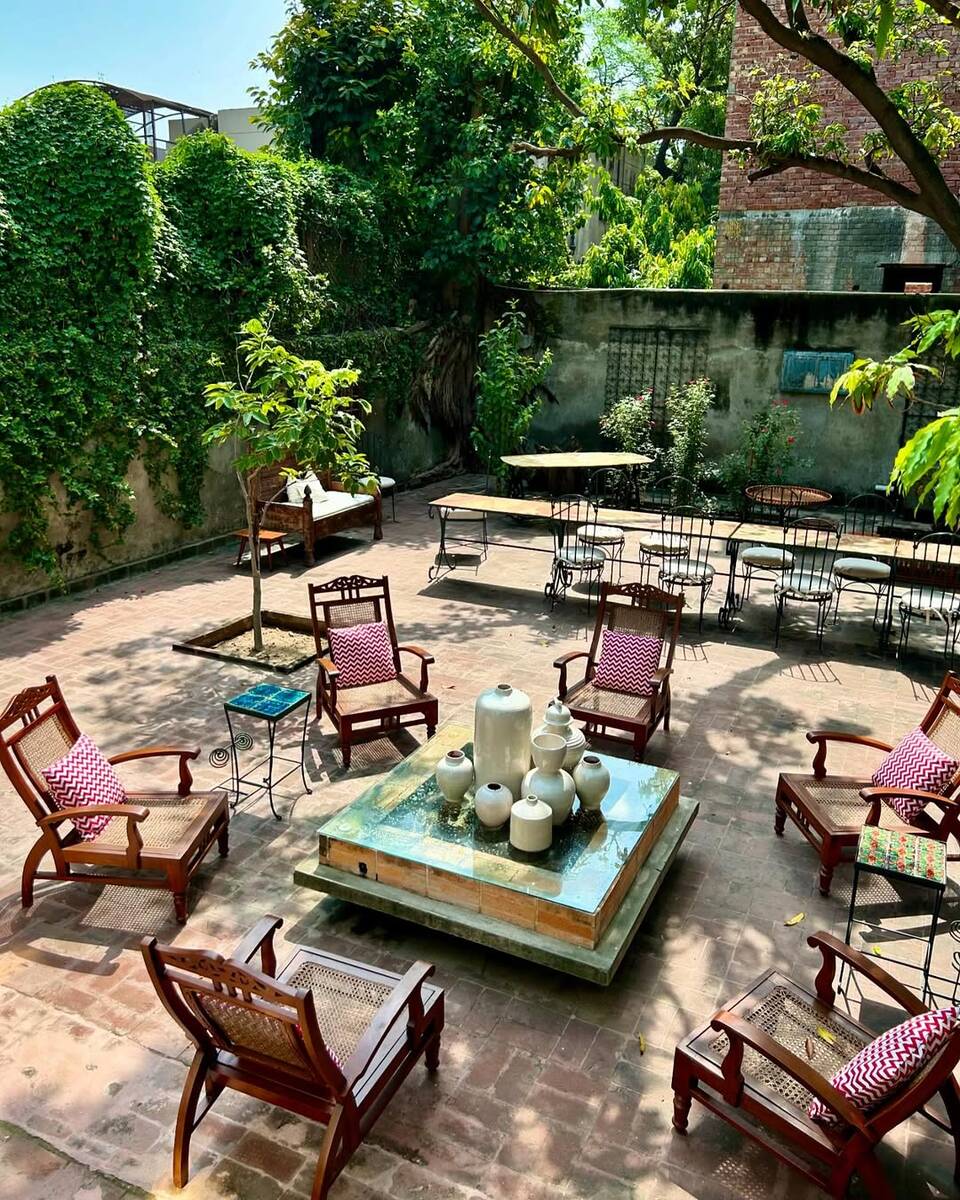KARACHI: Following a spate of cyberattacks on Pakistan’s banks, several account holders said on Thursday that they were forced to take precautionary measures to secure their savings.
“I have closed my online account because of the ongoing cyber-attacks. The banks are not sharing details of what is happening, so I’ve decided to close the accounts having experienced the trouble of dealing with banks,” Abdul Samad Memon, a 35-year-old businessman, told Arab News.
Samad is not the only account holder to opt out. Dozens of individuals have either voluntarily closed their accounts or requested their banks to block access as a precautionary measure. “I have asked my bank to close my online account and now I will withdraw cash through checks to be on the safer side,” Muhammad Salahuddin, a retired government employee said.
Authorities from several banks also said that they had notified their customers about the move. Muhammad Rehan, a school teacher, said he had received the notification from his bank and did not have an issue with the standard operating procedure as it is a “good step under the current circumstances”.
In the news recently, major financial institutions reported losing billions of rupees through fraudulent activities. Prime among these were transactions involving identify theft, whereby hackers would create fake accounts using the details of another person, mostly from an underprivileged background. Case in point was an incident reported by the Federal Investigation Agency (FIA) whereby it had seized the bank account of an ice-cream vendor who had Rs2.25 billion in his savings account.
“The hacking incidents show that nothing is reliable. Even though withdrawing cash by using fake checks has been the practice in the past, I still believe it is safer as compared to online banking,” Baber Sharif, a shopkeeper, said.
Adding insult to injury was the case of Pakistan’s BankIslami which reported that its security system had been breached on October 27, resulting in major losses for the company.
The extent of the online hacking came to light on Monday, when FIA’s cyber-crime chief, Captain (retd) Mohammad Shoaib said that customers’ data from almost all major Pakistani banks had been stolen in a recent security breach.
The State Bank of Pakistan (SBP), however, rejected the FIA’s findings, clarifying that the data of only one bank had been compromised. “SBP categorically rejects such reports. There is no evidence to this effect nor has this information been provided to the SBP by any bank or law enforcement agency,” the central bank said in a statement.
However, officials from the Pakistan Computer Emergency Response Team (PakCERT), a cybersecurity services provider, reported that on October 26, a data dump was posted on the Internet highlighting the details of more than 9,000 debit cards, out of which 8,864 belonged to customers of Pakistani banks.
“The [security details of the] compromised cards were sold at a price ranging from between $100 and $160. The second dump was posted on October 31 with over 12,000 cards on darknet comprising 11,000 cards from Pakistani banks,” the report added.
According to the PakCERT, security details of a total of 19,864 cards from 22 Pakistani banks were compromised.
Experts believe that the breach was not the act of any one individual but rather a group of individuals as the fraud was carried out in a sophisticated and organized manner. “The pattern of infiltration clearly shows that there was more than one entity involved,” S M Arif, a financial expert and banking technologist, told Arab News.
“We have to evaluate whether only the data which was available in the dark web was compromised or other data was used as well,” Arif said, adding that in circumstances where the data from one country is used for withdrawal purposes in another country while a third individual is the beneficiary “could only be done by those who have access to the data”. “The withdrawals have taken place through a financial system which means it is the failure of multiple entities on multiple points,” he said.
A B Shahid, a senior banker, told Arab News that the recent incidents of cyber-fraud have exposed the loopholes in the financial system and shaken the confidence of customers. “The customers believed that the banking systems was most reliable and secure for their savings but their confidence has been shaken to a large extent,” he said.
Holding the SBP and the management of various banks responsible for the infiltration and hacking, Shahid said that the financial bodies could have taken a cue from Wikileaks which had “exposed the system’s weaknesses”.
“Wikileaks clearly demonstrated that data can be downloaded and used for various reasons. In the race to promote electronic banking in Pakistan, neither the regulator nor the banks’ management took steps to install an anti-hacking system which is clearly evident from the recent incidents,” he said.
Users log off permanently to avoid cyber fraud
Users log off permanently to avoid cyber fraud

- Security of nearly 20,000 bank accounts compromised in recent heists
- Experts blame regulator and financial bodies for failure to prevent online attacks
Pakistan okays 50 percent increase in fixed gas charges for domestic consumers

- Gas prices increased for general industries, power stations and independent power producers to shift partial burden
- The move aligns with structural benchmarks agreed with the IMF, including rationalization of captive power tariffs
ISLAMABAD: The Pakistani government has revised gas prices for the fiscal year 2025-26 and okayed a 50 percent increase in fixed charges for domestic consumers, effective from July 1, the Oil and Gas Regulatory Authority (OGRA) announced on Sunday.
The development comes days after the federal cabinet’s Economic Coordination Committee (ECC) approved the hike in fixed gas charges for domestic users and to shift the partial burden to bulk consumers, like the power sector and industry.
“Protected category to pay a fixed charge of Rs600 and meter rent of Rs40,” an OGRA notification said on Sunday. “Non-protected category to pay a fixed charge of Rs1,500, up to 1.5hm³ (cubic hectometers), while Rs3,000 for exceeding consumption of 1.5hm³ and meter rent of Rs40.”
While the government has increased the fixed charges, the sale prices of gas for both protected and non-protected consumers remain unchanged, according to the notification.
The government also kept prices for tandoors commercial units, compressed natural gas and ice factories unchanged, but increased the rates for general industries, power stations and independent power producers.
The move aligns with structural benchmarks agreed with the International Monetary Fund (IMF), including rationalization of captive power tariffs and a shift from subsidies to direct, targeted support for low-income consumers.
Architectural Digest Middle East lists Lahore’s Wusaaq hotel among world’s best

- Tucked behind bougainvillea-covered walls in Lahore’s Gulberg neighborhood, Wusaaq is a mid-century residence-turned-guest house
- The 1950s Pakistani home, preserved with minimal intervention, shows contemporary Pakistani art blending memory with modern comfort
ISLAMABAD: The Architectural Digest (Ad) Middle East magazine, part of the Condé Nast portfolio, has compiled a list of 31 best hotels in the world in 2025, naming Lahore’s Wusaaq hotel among them.
Launched in 2015, the bi-monthly magazine spotlights exceptional design by Middle Eastern and international talents, provides an exclusive view into the world’s most beautiful spaces and inspires readers to refresh their lives.
These 31 exotic hotels, located in 18 countries, brim with exceptional design ranging from a cinematic new Roman address to a Saudi resort that looks like tiny UFOs have landed on the Red Sea coast to exotic properties in Paris, Dubai, Doha, Mumbai, Luxor and London.
Tucked behind bougainvillea-covered walls in Lahore’s Gulberg neighborhood, Wusaaq is a mid-century residence-turned-soulful guest house that was restored by Faaria Rehman Salahuddin as a tribute to her late mother.
“Quietly luxurious and entirely personal, Wusaaq reflects a kind of hospitality that values presence over polish – a rare, radiant stay in the heart of a lively city,” reads the AD magazine article, published on June 26.

The 1950s Pakistani home has been preserved with minimal intervention – original porcelain tiles, brass fittings, and retro light switches remain intact. Each of the five rooms is named after a flower, with pietra dura inlaid keys inscribed in Urdu and English, according to the publication.
In the courtyard, fruit and a sprawling peepal tree offer shade where guests gather for breakfast served on heirloom crockery. Inside, window chiks, a traditional kitchen dolly, custom furniture, and contemporary Pakistani art blend memory with modern comfort.

In a post on Instagram, Wusaaq said it celebrated the listing.
“We are overwhelmed and humbled by the love and appreciation sent to us by our patrons, guests, friends and family,” the hotel said.
The list, according to the AD Middle East magazine, offers a space for all sorts of travelers from city break lovers to those who prefer nothing more than an escape into the wilderness.
Pakistan warns of more showers, landslides after rains kill 31

- The downpours, likely to continue till July 5, may disrupt transportation, communication and electricity services
- Pakistan, home to over 240 million, is currently bracing for an extreme monsoon season that lasts till mid-Sept.
ISLAMABAD: Pakistan’s National Disaster Management Authority (NDMA) on Sunday warned of more showers, flash floods and landslides in the country from June 29 till July 5, following the deaths of more than 30 people rain-related incidents this week.
Downpours are expected to hit Kashmir, northeastern Punjab, Potohar region, Islamabad, and upper and central parts of Khyber Pakhtunkhwa between June 29 to July 3. This may result in urban flooding in low-lying areas of Central Khyber Pakhtunkhwa, particularly in the cities of Peshawar, Charsadda, Nowshera, and Kohat.
In the Potohar region, including Attock, Chakwal, Rawalpindi, and Islamabad, there is a high likelihood of urban flooding, especially during the nighttime hours from 9pm to 4am on June 29. Rain emergencies may also occur in the low-elevation areas of Jhelum, Mandi Bahauddin, Gujrat, Sialkot, Gujranwala, Narowal, Lahore, Faisalabad and Sargodha.
“These conditions could lead to disruption of transportation in hilly and mountainous regions, landslides, and interruption of communication and electricity services,” the NDMA said in a statement on Sunday afternoon.
“NDMA urges all provincial and district administrations to remain on high alert, activate contingency plans, and ensure timely dissemination of warnings in local languages.”
The authority cautioned against possible flash flooding in Hazara and Malakand Divisions in Khyber Pakhtunkhwa, lower parts of Jhelum and Poonch valleys in Azad Kashmir, and the Pir Panjal range in northeastern Punjab.
“Low-level flooding is anticipated in River Kabul at Nowshera and its tributaries, along with medium flows in Swat River,” it said.
“Similar low-level flows are expected downstream of Tarbela Dam and in the Chenab River at Khanki and Qadirabad. Additionally, flash floods are likely in tributaries and streams of River Chitral and Hunza.”
The Sindh province in the country’s south is expected to receive heavy to very heavy rainfall, particularly affecting Hyderabad, Badin, Thatta and Karachi from June 29 till July 5, according to the NDMA.
The risk of urban flooding in low-lying areas of Karachi division is expected to increase significantly from July 2, particularly in the districts of Hyderabad, Thatta and Badin, where rainwater accumulation may trigger localized flooding and emergency conditions.
“Citizens, especially those in high-risk areas, are advised to stay updated through official adviseries, avoid unnecessary travel near glacial streams, riverbanks, and flooded roads, and keep emergency kits ready,” the authority said.
The Balochistan provincial disaster management authority (PDMA) said thundershowers were expected in several parts of the province over the next 36 hours.
“Landslides/mudflow may also occur in hill torrents due to flash water course,” it said, adding that Lasbela, Wadh, Hub, Awaran, Khuzdar, Surab, Kalat Barkhan and Musakhel districts were likely to be affected.
Isolated falls of rain were also expected in Barkhan, Ziarat, Harnai, Naseerabad, Kacchi, Loralai, Quetta, Mastung, Zhob, Duki, Sohbatpur, Jafarabad, Kohlu, Killa Saifullah, Jhal Magsi, Usta Muhammad, Sherani, Dera Bugti, Panjgur, Gwadar and Kech districts.
Heavy rains have lashed Pakistan’s Khyber Pakhtunkhwa, Punjab and Sindh provinces since June 27, raising water levels in rivers to alarming levels and triggering floods in various cities across the South Asian country.
The death toll from drownings in the wake of flash flooding in Pakistan’s northwestern Swat River has climbed to 12, the main rescue service in KP said on Sunday.
Six people have been killed in Punjab, 18 in KP and seven in Sindh over the last two days, the NDMA said on Sunday. Punjab reported the highest number of injuries in the same period, 21, followed by Sindh with 16 and KP with six.
Pakistan, home to over 240 million people, is considered one of the world’s most vulnerable countries to the effects of climate change and faces extreme weather events with increasing frequency.
Prime Minister Shehbaz Sharif on Saturday directed the NDMA to enhance coordination with provinces and issue timely weather alerts to citizens via cellphone messages.
Islamabad’s mission, Saudi non-profit join hands to assist Pakistani special needs children in Kingdom

- Specially abled Pakistani children will now be able to get evaluative clinics, rehabilitative services at a 60 percent discount
- Saudi Arabia is home to over 2.5 million Pakistani expatriates and serves as the top source of remittances to South Asian nation
ISLAMABAD: The Pakistani embassy in Riyadh has signed an agreement with Saudi Arabia’s Children with Disabilities Association (CDA) non-profit group to provide Pakistani children with special needs in the Kingdom with a 60 percent discount on clinical and rehabilitation services at CDA facilities, Pakistan’s ambassador to Saudi Arabia said on Sunday.
Founded in 1982, the CDA is one of the largest child rehabilitation institutions in the region, providing care and support through rehabilitation and education to disabled children from birth until they are 12 at 11 CDA branches supported by a community of 4,900 members.
Pakistan’s Ambassador to Saudi Arabia Ahmed Farooq and CDA Board of Directors Chairman Prince Sultan bin Salman bin Abdulaziz signed a cooperation agreement in Riyadh on June 24 for Pakistani special needs children for a period of one year, extendable with the mutual consent of both parties.
“We are pleased to share that a long-standing demand of our community has been fulfilled,” Ambassador Farooq told Arab News, adding that the embassy can now refer specially abled Pakistani children below the age of 14, who require evaluative clinic and rehabilitative services, to the CDA.
“All centers of the association will offer these children the support they need, including a 60 percent reduction in their rates.”

The Pakistani envoy said the CDA would offer rehabilitative services to these children in both English and Arabic languages, and thanked Prince Sultan for his support in this regard.
Pakistan and Saudi Arabia enjoy strong trade, defense, cultural and brotherly relations. The Kingdom is home to over 2.5 million Pakistani expatriates and serves as top source of remittances to the cash-strapped South Asian country.
To avail this service, Ambassador Farooq said, Pakistani community members will have to send a written request to the embassy, including full name, age and passport details of the child.
“Upon receiving requests, the embassy will refer them to the association for further processing, after which the child will be enrolled as a student at a [CDA] center,” he said, hoping this important step will not only address the immediate needs of the community but will also help build confidence in the mission’s public service.
The implementation of the cooperation instrument began on the date of signing of the agreement between both sides and will remain in effect for one year, according to the agreement seen by Arab News.
The agreement was driven by the Pakistani mission’s interest in providing rehabilitation services to the expat community and the CDA’s goal to enhance the level of services provided to children with disabilities in different regions of the Kingdom, whether citizens or residents.
“The second party [CDA] will offer a special discount for assessing and providing rehabilitative services to referred beneficiaries,” the document said, adding that the beneficiaries’ guardians were responsible for covering the costs of assessment and therapeutic services after the discount was applied.
It stated that the association would provide an annual report on the services rendered to patients under this cooperation.
“A contact officer and coordinator shall be appointed by both parties, with each party providing the other with names and information before commencing work under this instrument of cooperation,” the document said.
China rolls over $3.4 billion of commercial loans to Pakistan

- The IMF required Pakistan’s foreign exchange reserves to be over $14 billion at the end of the current fiscal year on June 30
- Foreign loans, especially the Chinese ones, are critical to shoring up cash-strapped Pakistan’s low foreign exchange reserves
KARACHI: China has rolled over $3.4 billion in loans to Islamabad, which together with other recent commercial and multilateral lending will boost Pakistan’s foreign exchange reserves to $14 billion, a finance ministry source said on Sunday.
Beijing rolled over $2.1 billion, which has been in Pakistan’s central bank’s reserves for the last three years, and refinanced another $1.3 billion commercial loan, which Islamabad had paid back two months ago, the source said.
Another $1 billion from Middle Eastern commercial banks and $500 million from multilateral financing have also been received, he said.
“This brings our reserves in line with the IMF target,” he said.
The loans, especially the Chinese ones, are critical to shoring up Pakistan’s low foreign reserves, which the IMF required to be over $14 billion at the end of the current fiscal year on June 30.
Pakistani authorities say that the country’s economy has stabilized through ongoing reforms under a $7 billion IMF bailout.











